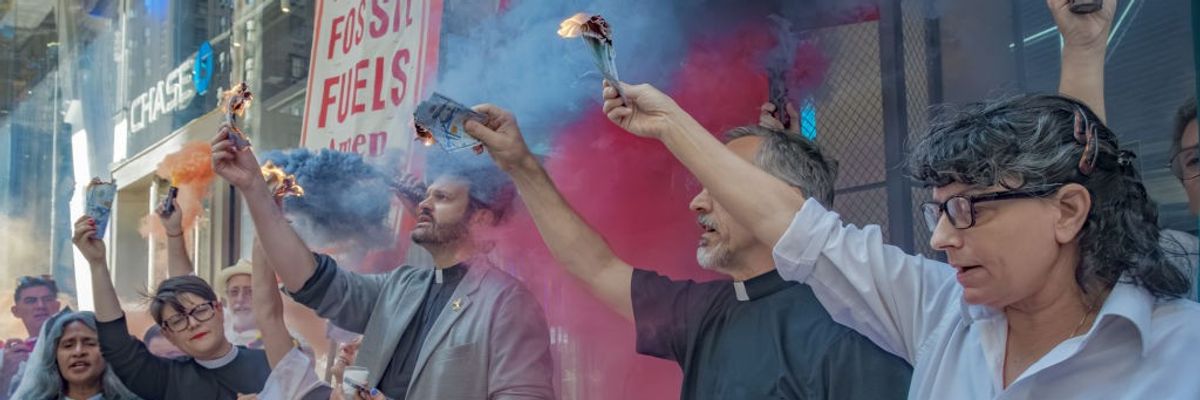Progressives and many others agree on one thing: Across a broad front of national life, the American economy and our politics are not delivering good results. The documented truth is that the conditions of life and living in our country
are deplorable for most people, with almost all measures of public well-being behind other upper income countries.
That has been the case for decades, actually, and is one of the things that accounts for the widespread political disaffection in American today. When combined with extraordinary wealth concentrated in the hands of a tiny minority, the unsurprising result is public anger and resentment.
A host of reforms are advocated to improve key aspects of national life—in education, healthcare, child welfare, finance and banking, environmental and climate protection, taxes, social justice, advancement of women, and more. Getting such reforms adopted would make a huge difference. But more and more people are sensing that something deeper must be done, that what we should think of as our political economy—the combination of our economy and the politics that support it—is badly flawed and incapable of meeting today’s big challenges.
What we should be moving toward is the law of the next system, beyond today’s capitalism and yesterday’s socialism.
This realization has led to the now-frequent call for transformative change. There is a hunger for deep change but uncertainty about what that means. I want to spell out here what I think transformative change could and should look like. Overall, we should seek to drive transformative changes so deeply that our country eventually emerges with a new system of political economy, one that routinely delivers good results for people, place, and planet.
I know that this idea of a new political economy is too big to swallow whole. It can best be approached, I think, through a series of interacting, mutually reinforcing transitions—transformations that attack and undermine the key motivational structures of the current system, while replacing these old structures with new arrangements needed for a flourishing of human and natural communities.
I believe the following transitions hold the key to moving to this new political economy. We can think of each as a progression from today to tomorrow. In each of these areas, there are currently laws and policies that shape today’s realities. Collectively, we can think of these laws as the law of today’s corporatist, consumerist capitalism. What we should be moving toward is the law of the next system, beyond today’s capitalism and yesterday’s socialism.
Economic Growth: From growth fetish to post-growth society, from mere GDP growth to growth in social and environmental well-being and growth focused squarely on democratically determined priorities.
Indicators: From GDP (“grossly distorted picture”) to accurate measures of social and environmental health and quality of life.
The Corporation: From one dominant ownership and profit-driven model to new business models embracing economic democracy and goals other than profit, from shareholder primacy to stakeholder primacy.
The Market: From neoliberal market worship to powerful market governance in the public interest, from dishonest prices that neglect external costs to honest ones, from unfair wages that neglect productivity to fair ones, from commodification to reclaiming the commons.
Money and Finance: From money created through bank debt to money created by government, from investments seeking high financial returns to those seeking high social and environmental returns, from Wall Street to Main Street.
Social Conditions: From economic insecurity to a guaranteed income; from vast inequalities to equitable distribution and fundamental fairness; from racial, religious, gender, and other invidious discrimination to firm protection of rights and personal security.
Consumerism: From consumerism and affluenza to sufficiency and mindful consumption, from more to enough, from materialism to finding meaning and value in non-material things.
Communities: from runaway enterprises and throwaway communities to vital local economies, from social rootlessness to rootedness and community solidarity.
Dominant Cultural Values: From having to being, from getting to giving, from richer to better, from isolated to connected, from me to us, from apart from nature to part of nature, from near-term to long-term.
Politics: From weak democracy to strong, from creeping corporatocracy and plutocracy to true popular sovereignty and empowerment of marginalized groups, from threatened civic and personal rights to secure ones.
Foreign Policy and the Military: From American exceptionalism to America as a normal nation, from hard power to soft, from military prowess to real national and international security.
The good news is that we already know a great deal about the policy and other changes needed to move strongly in each of these directions, even value change. There are books full proposals and, importantly, advocacy groups working for many of them.
Also, we are seeing the proliferation of innovative models along the lines sketched here, particularly at the local level: sustainable communities, transition towns, solidarity and local living economies, sustainable and regenerative agriculture, participatory budgeting, locally owned and managed energy utilities, local currencies, and community development and investment institutions. Campaigns proliferate: Black Lives Matter! Move Your Money! Take Back Your Time! Own Your Own Utility! Live Lightly That Others May Live!
We are also seeing the spread of innovative business models that prioritize community and environment over profit and growth—including social enterprises, for-benefit business, worker-owned and other cooperatives, and local credit unions—as well as numerous campaigns for fair wages, worker rights, pro-family policies, climate action, and minority justice. Together with new community-oriented and Earth-friendly lifestyles, these initiatives provide inspirational models of how things might work in a new political economy devoted to sustaining human and natural communities. Practical utopians at work and play, bringing the future into the present!
Out there, between despair and hopium, are the grounds for struggle.




